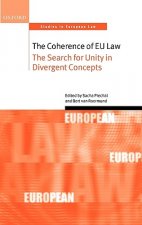
Code: 02536673
Fault Lines of Globalization
by Hans (Professor of Legal Philosophy at Tilburg University and Research Fellow of the Stellenbosch Institute for Advanced Study) Lindahl
The question whether and how boundaries might individuate and thereby be constitutive features of any imaginable legal order has yet to be addressed in a systematic and comprehensive manner by legal and political theory. This book ... more
- Language:
 English
English - Binding: Hardback
- Number of pages: 304
Publisher: Oxford University Press, 2013
- More about this

You might also like
-

Down to Earth, Politics in the New Climatic Regime
12.30 € -23 % -

Rothenburg ob der Tauber - Ansichten aus alten Tagen
19.36 € -9 % -

Coherence of EU Law
226.76 € -

Fragmente Aus Dem Tagebuche Eines Geistersehers
25.61 € -5 % -

Lehrbuch Der Hydrotherapie
77.97 € -2 % -

Arguing Fundamental Rights
121.04 € -

Liebesgeschichte - Gedichte
14.52 € -7 %
Give this book as a present today
- Order book and choose Gift Order.
- We will send you book gift voucher at once. You can give it out to anyone.
- Book will be send to donee, nothing more to care about.
More about Fault Lines of Globalization
You get 386 loyalty points
 Book synopsis
Book synopsis
The question whether and how boundaries might individuate and thereby be constitutive features of any imaginable legal order has yet to be addressed in a systematic and comprehensive manner by legal and political theory. This book seeks to address this important omission, providing an original contribution to the debate about law in a global setting. Against the widely endorsed assumption that we are now moving towards law without boundaries, it argues that every imaginable legal order, global or otherwise, is bounded in space, time, membership, and content. The book is built up around three main insights. Firstly, that legal orders can best be understood as a form of joint action in which authorities mediate and uphold who ought to do what, where, and when with a view to realising the normative point of acting together. Secondly, that behaviour can call into question the boundaries that determine who ought to do what, where and when: a-legality. Thirdly, that this a-legality reveals boundaries as marking a limit and, to a lesser or greater extent, a fault line of the respective legal order. Legal boundaries reveal ways of ordering the who, what, where, and when of behaviour which have been excluded, yet which remain within the range of practical possibilities accessible to the collective: limits. However legal boundaries also intimate an order which exceeds the range of possibilities accessible to that collective - the fault line of the respective legal order. Careful analysis of a wide range of legal orders, including nomadism, Roman law, classical international law, ius gentium, multinationals, cyberlaw, lex mercatoria, the EU, global regimes of human rights, and space law validates this thesis. What sense, then, can we make of the normativity of the law, if there can be no inclusion without exclusion? Arguing that legal and political theories misunderstand how legal boundaries do their work of including and excluding, the book develops a normative theory of legal order which is alternative to both communitarianism and cosmopolitanism.
 Book details
Book details
Book category Books in English Society & social sciences Society & culture: general Social issues & processes
153.83 €
- Full title: Fault Lines of Globalization
- Author: Hans (Professor of Legal Philosophy at Tilburg University and Research Fellow of the Stellenbosch Institute for Advanced Study) Lindahl
- Language:
 English
English - Binding: Hardback
- Number of pages: 304
- EAN: 9780199601684
- ISBN: 0199601682
- ID: 02536673
- Publisher: Oxford University Press
- Weight: 594 g
- Dimensions: 241 × 155 × 22 mm
- Date of publishing: 19. September 2013
Trending among others
-

Scum Manifesto
8.46 € -15 % -

Superforecasting
10.88 € -23 % -

Testo Junkie
22.89 € -14 % -

Rational Optimist
15.83 € -24 % -

Drama Of Being A Child
11.09 € -22 % -

Miracle Method
18.15 € -13 % -

East and West
30.56 € -

Open Conspiracy
12.30 € -23 % -

Feminism/Postmodernism
50.63 € -

My Own Story
11.69 € -18 % -

New Odyssey
13.31 € -28 % -

Tribe: On Homecoming and Belonging
16.53 € -28 % -

The Second Sex
7.05 € -25 % -

The Lucifer Effect
16.03 € -27 % -

The Feminine Mystique
9.98 € -25 % -

Secret Lives of Introverts
13 € -28 % -

A Room of One's Own
7.96 € -6 % -

Shock Doctrine
14.82 € -22 % -

Alcoholics Anonymous Big Book
22.69 € -

Out Of The Shadows:understanding Sexual Addiction
15.93 € -16 % -

The Divide
11.89 € -16 % -

Regarding the Pain of Others
12.20 € -22 % -

White Tears Brown Scars
10.08 € -24 % -

Psychopath Free
20.17 € -4 % -

Prize
18.65 € -22 % -

Manifestly Haraway
18.35 € -12 % -

I Choose To Live
11.29 € -28 % -

Food Of The Gods
15.22 € -28 % -

Toxic Parents
14.31 € -22 % -

The Beauty Myth
6.04 € -28 % -

Rational Recovery
15.12 € -24 % -

Sorry I'm Late, I Didn't Want to Come
10.88 € -23 % -

Soft Power
14.31 € -28 % -

Silently Seduced
11.59 € -28 % -

Feminism, Interrupted
13.51 € -

Blitzed
11.29 € -21 % -

Reclaiming Conversation
16.33 € -18 % -

Free from Lies
19.26 € -19 % -

From Rage to Courage
18.25 € -13 % -

Political Correctness Gone Mad?
8.67 € -29 % -

Violence
11.89 € -19 % -

Vagina
10.78 € -14 % -

No Logo
11.89 € -19 % -

Great Leveler
17.34 € -13 % -

Story of My Life
6.04 € -

Stuart
13.41 € -14 % -

Feminism is for Everybody
20.97 € -14 % -

Conflict Is Not Abuse
17.44 € -17 % -

Presence
14.52 € -24 %
Collection points Bratislava a 2642 dalších
Copyright ©2008-24 najlacnejsie-knihy.sk All rights reservedPrivacyCookies



 15549 collection points
15549 collection points Delivery 2.99 €
Delivery 2.99 € 02/210 210 99 (8-15.30h)
02/210 210 99 (8-15.30h)